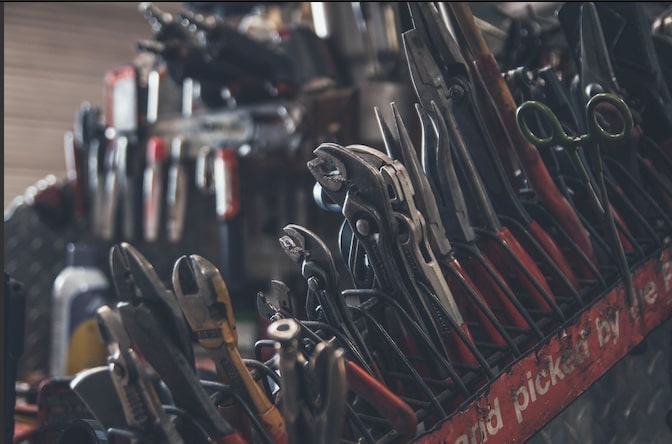
If your Hyundai i30 is experiencing a whining noise, determining where and when the noise is happening is coming from is key to diagnosing and tracking down the cause.
With that in mind, this page is divided by when you hear the whining noise and common causes under those conditions.

Is the whining noise constant when you rev your vehicle’s engine? Or does it not change with engine speed? If it changes when revving your i30’s engine, the cause of the whining sound will most likely be an accessory bolted to the engine. However, if it stays constant as you rev the engine, it will be something else.
Knowing where and when the noise happens can make quick work of diagnosing a whining noise coming from the Hyundai i30.
Quick Info Table
| Cause | Sound Type | Notes |
|---|---|---|
| Alternator | Consistent grating | Can make the stereo whine |
| Power Steering Pump | Loud and deep | Also changes when turning the wheel |
| Water Pump | Metal on metal | Watch the vehicle’s temperature |
| Serpentine Belt | High pitched Squeal | Usually, loudest when the engine is cold |
| Radio | Whine from speakers | Usually worse on the AM radio |
| Starter | A whirring sound | Should stop a few seconds after cranking the vehicle over |
| Torque Converter | Metallic Grind | Usually only happens when your i30 is in gear. |
Hyundai i30 Whining Noise When Accelerating
A whining sound when accelerating is almost always caused by a bad accessory attached to your i30’s engine. Here are the most common causes of whining noises when accelerating:
1. Bad Alternator
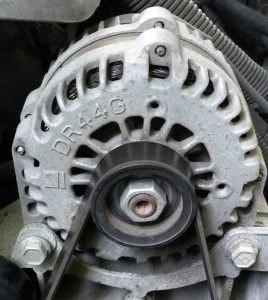
If your Hyundai i30’s alternator is going bad, it’ll often begin to put out a high-pitched whining sound. It may also be accompanied by the battery light, depending on whether or not it is putting out the proper voltage.
A failing alternator can also make your car’s stereo hum while driving. This humming sound will change with the engine’s RPM.
Unplugging the alternator from the wiring harness should stop the noise.
2. Power Steering Pump
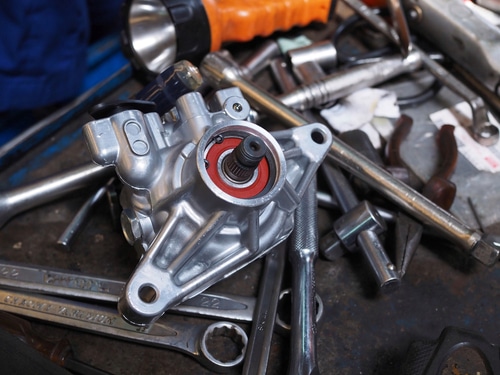
The power steering pump is a common reason your Hyundai i30 might whine when accelerating. If it gets too low on fluid, it’ll whine a lot. Check the fluid level and fill it back up to the factory fill line. The whining sound should change when you turn your car’s steering wheel or rev the engine.
To determine if it is the power steering pump, turn the wheel left and right with the vehicle sitting. Does the sound get louder while turning your i30’s steering wheel? That’s a great indication that it is probably the power steering pump making noise. All of your engine accessories will change their wine depending upon the RPM. Only the power steering pump will change with RPM or the steering wheel.
3. Water Pump Bearings
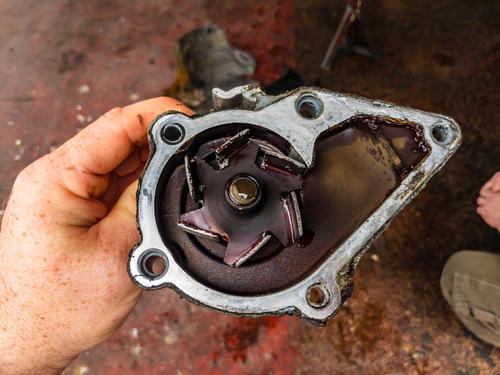
When your Hyundai i30’s water pump goes bad, it’ll make a squeaking sound. The sound could almost be described as “barking.” It’ll be deeper than the sound of a worn serpentine belt sounds.
4. Worn Serpentine Belt
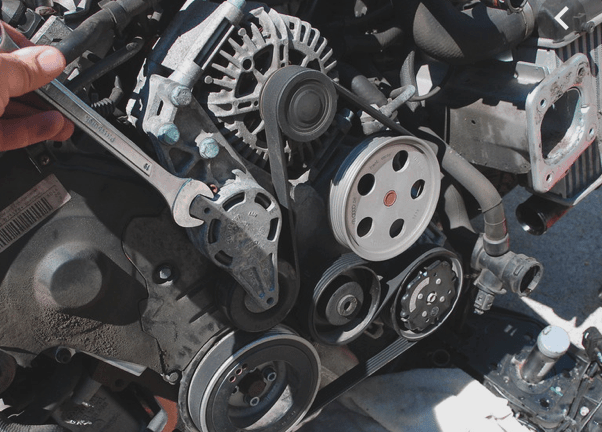
Your i30’s serpentine belt is responsible for taking the motion from the crankshaft and turning all of your accessories. When it goes bad, it’ll cause a high-pitched whine or squeak. This is particularly true when you first start the vehicle.
The whining noise almost comes across as a chip or chirp. A bent or wobbling pulley can cause the serpentine belt to make noise. It would be obvious when looking at the issue.
Here’s how to diagnose a squeaky serpentine belt: ChrisFix(YouTube), Serpentine Belt Diagnosis (this site).
Hyundai i30: Whines When Starting
Whining when starting can be frustrating to diagnose since you constantly have to start and restart your Hyundai i30 to duplicate the conditions that caused the sound to begin with.
Here are the most likely causes of a vehicle whining when starting:
1. Serpentine Belt
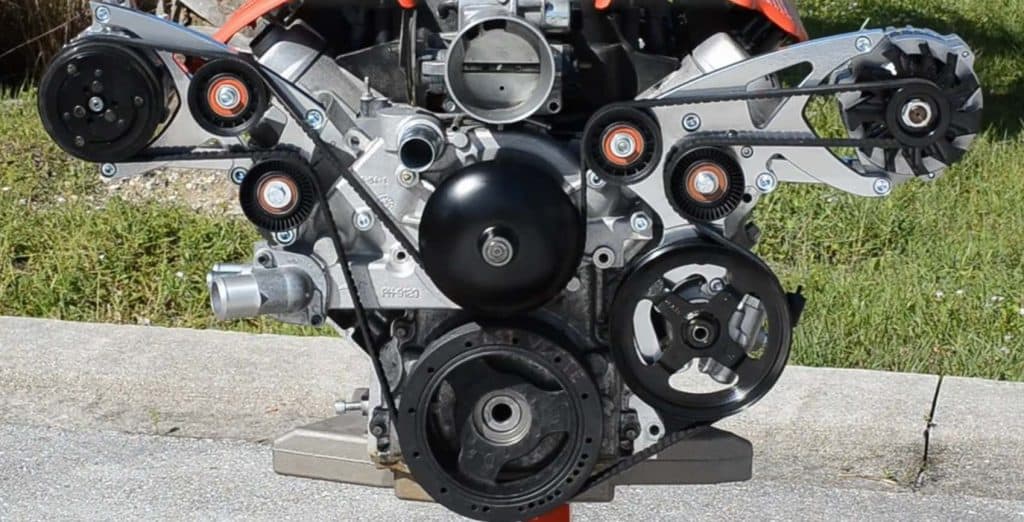
Your i30’s serpentine belt turns all of the engine accessories. When you first start your car, the serpentine belt may make a loud and long whining sound before going relatively quiet. That sound indicates that the serpentine belt isn’t gripping the pulleys.
If your serpentine belt looks cracked or glazed, replacing it is cheap and easy. There’s more on how to diagnose a bad serpentine belt in the other serpentine belt section of this article.
2. Radio or Stereo Making Whining Noise
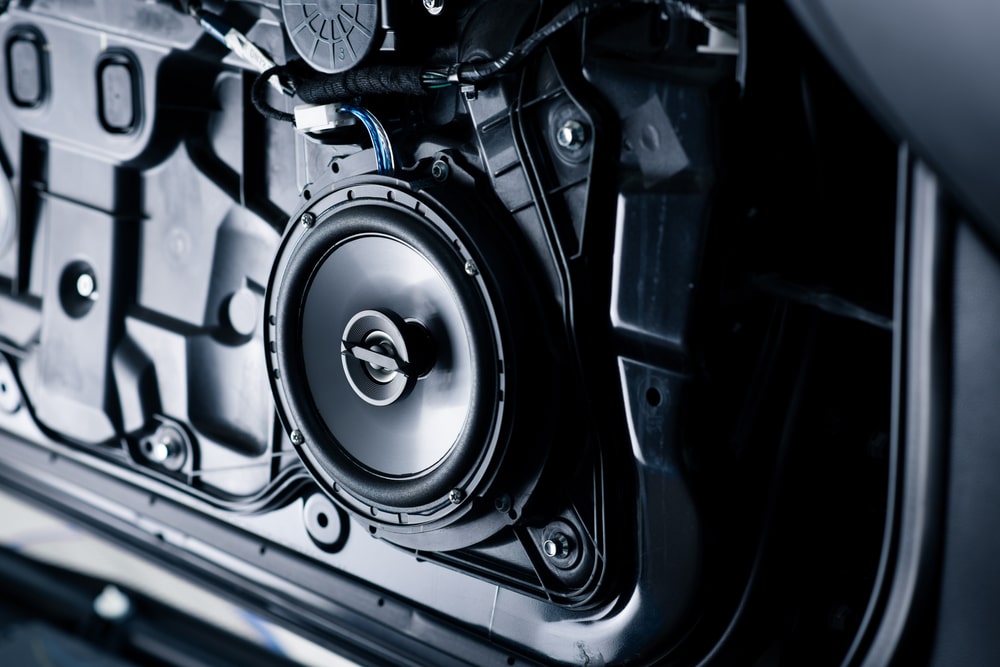
If your i30’s stereo is making a whining noise, it is usually caused by an “alternator whine” condition. Alternator whine is a product of a drop in voltage between the radio and the alternator itself. It is usually way more noticeable on the A.M. band on the radio. You’ll hear it match the acceleration of the vehicle.
A corrupted ground wire almost always causes alternator whine to the radio. Once a good ground is restored, it should go away. Here is an excellent page with way more info on the subject.
3. Starter
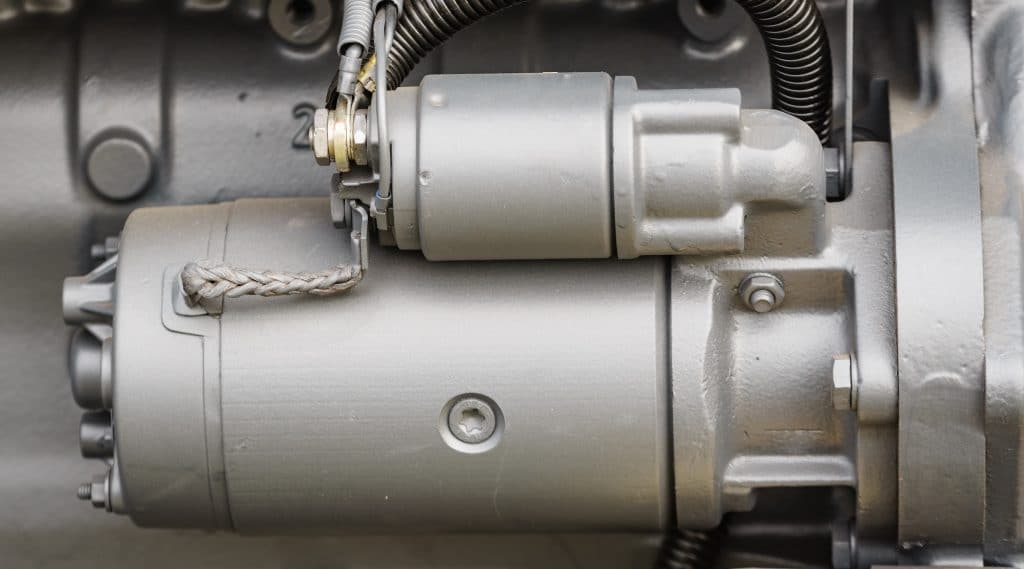
Your Hyundai i30’s starter may not fully engage with the flywheel/flexplate. Or, it could be a situation where it is having a hard time disengaging. If it is even a little bit out of alignment, it’ll be enough to cause a whining noise.
4. Torque Converter
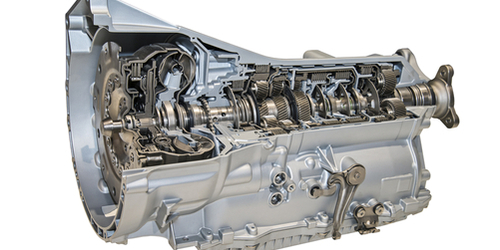
A bad torque converter can cause a whining sound when starting your i30. A good place to start would be to check the transmission fluid. You will want to check it for color and metal content.
If you see any flecks of metal on there, it will probably need to be serviced. As long as you have the dipstick out, go ahead and check the transmission fluid color. It can tell you a lot about the health of your transmission.
Conclusion
A bad serpentine belt is the most common reason a Hyundai i30 will make a whining noise. Use the table above and noise recordings to make fixing your car easier.

